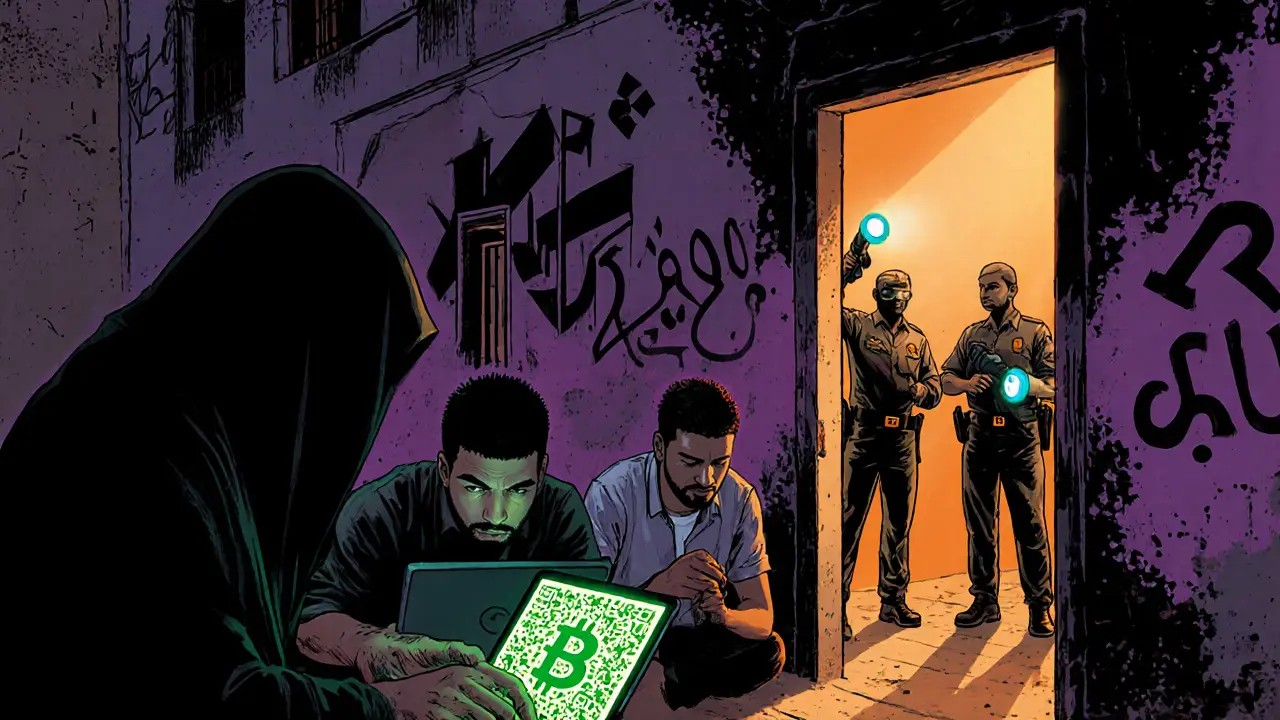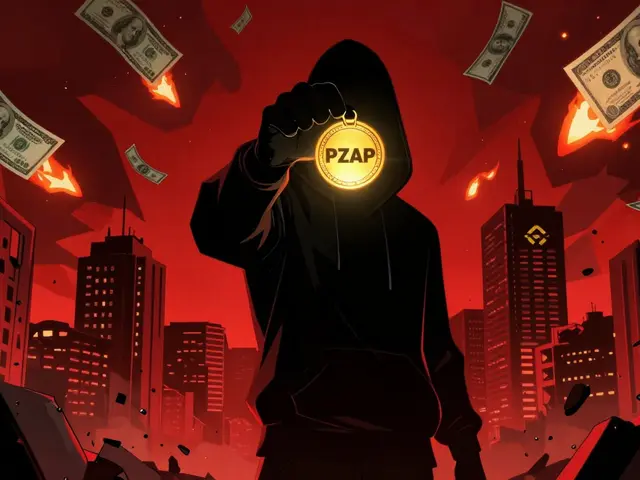Understanding the Central Bank of Iraq's Crypto Restrictions and Future CBDC Plans
The Iraq cryptocurrency ban has made headlines for its harsh stance on digital assets, but what does it really mean for banks, businesses, and everyday users? This guide breaks down the legal framework, enforcement reality, regional comparisons, and the country’s parallel push toward a state‑run Central Bank Digital Currency (CBDC). By the end, you’ll know exactly where the line is drawn, why it was drawn, and what could change next.
Legal Backbone: How the Ban Was Enforced
Central Bank of Iraq is the sovereign authority that issued the first crypto prohibition in 2017, citing financial‑crime risks and consumer‑protection concerns. The ban was codified in CBI Circular No. 125/5/9, released on 22 November 2021. This circular explicitly forbids all supervised entities-including banks, non‑bank financial intermediaries, and electronic‑payment service providers-from conducting any transaction involving virtual assets or cryptocurrencies.
The circular also declares that digital assets have no legal tender status in Iraq, meaning they cannot be used to settle debts or obligations. A follow‑up directive on 26 March 2022 aligned the policy with the Financial Action Task Force (FATF) Recommendations, tightening anti‑money‑laundering (AML) and counter‑terrorist‑financing (CTF) rules around virtual assets.
What the Rules Actually Prohibit
- Banks cannot hold, trade, or facilitate cryptocurrency transactions.
- Payment cards, e‑wallets, and other electronic instruments are barred from being used for crypto purchases.
- Non‑bank financial intermediaries must conduct enhanced due‑diligence and are prohibited from offering crypto‑related services.
- Any internal policy that allows speculative trading of digital assets is deemed non‑compliant.
Violations trigger administrative penalties and may lead to revocation of operating licenses, but enforcement against individual users remains vague.
Enforcement Gaps: The Gray Zone for Individuals
While the CBI’s directives target institutions, they do not criminalize personal ownership of cryptocurrencies. This creates a legal gray area: individuals who hold Bitcoin or trade on peer‑to‑peer platforms are not explicitly breaking the law, yet they may attract scrutiny under AML statutes if large transfers are detected.
In practice, enforcement against private users is inconsistent. Some reports note occasional raids on informal trading hubs in Baghdad and Erbil, but many users continue to operate via offshore exchanges or VPN‑masked platforms. The lack of a clear criminal provision means the risk level varies case‑by‑case, often depending on the scale of activity and the visibility of the transaction.
Regional and Global Context: How Iraq Stands Apart
Only about ten countries worldwide maintain a total prohibition on crypto, placing Iraq in a small, restrictive cohort. By contrast, neighboring Saudi Arabia and the United Arab Emirates have adopted licensing regimes that allow regulated crypto services. China, while strict, still permits limited mining activities under tight state control, whereas Iraq’s policy bans both institutional and consumer‑facing services.
Chainalysis’ 2024 Global Crypto Adoption Index ranks Iraq near the bottom-practically zero measurable legitimate activity-while countries like the United Kingdom and Singapore sit at the top with robust regulatory sandboxes. This stark difference underscores Iraq’s isolation from the global trend of integrating digital assets into regulated financial ecosystems.

Religious Rulings: Adding a Cultural Layer
The restrictive stance receives backing from religious authorities. The Supreme Fatwa Authority of the Kurdistan Regional Government (KRG) issued a formal fatwa against the OneCoin scheme in 2018, labeling it impermissible under Islamic law. Although OneCoin was later exposed as a massive fraud, the ruling set a precedent that many Iraqi citizens interpret as a broader disapproval of all cryptocurrencies.
These religious pronouncements reinforce public skepticism and provide an additional compliance incentive for financial institutions wary of both legal and societal backlash.
Parallel Track: Iraq’s Push Toward a State‑Controlled CBDC
In March 2025, Mazhar Mohammed Saleh-a senior financial advisor to the Iraqi Prime Minister-announced that the CBI is researching a Central Bank Digital Currency. The proposed CBDC aims to reduce cash leakage, lower printing costs, improve tracking of financial flows, and bolster AML efforts. Unlike the outright ban on private crypto, the CBDC would be a sovereign digital token fully controlled by the Central Bank.
Key anticipated benefits include:
- Enhanced visibility into spending patterns for regulatory bodies.
- Potential to increase financial inclusion by providing a digital payment method for the unbanked.
- Improved ability to enforce sanctions and combat illicit financing.
Critics, however, warn that a state‑run CBDC could become a tool for pervasive surveillance, especially in a country where dissent on social media already faces crackdowns.
Economic Backdrop: Why the Ban and CBDC Matter
Iraq’s financial system wrestles with severe liquidity constraints. Deposits represent only 8.8 % of the total money supply, and the government’s monthly budgetary needs hover between 18 and 20 trillion dinars. The 2020 devaluation of the dinar-shifting from 1,182 to 1,450 dinars per US dollar-triggered sharp price hikes and public unrest.
Faced with cash shortages and high inflation, the government sees a CBDC as a way to tighten monetary control while the crypto ban protects the fragile banking sector from volatile, speculative assets that could exacerbate liquidity risks.

Human Rights and Legal Critiques
The Human Rights Foundation’s CBDC Tracker rates Iraq poorly on financial freedom, noting that “the combination of a total crypto ban and a state‑run digital currency could dramatically expand governmental surveillance.” Legal analysts at Al Nesoor Law Firm argue that a balanced approach-encouraging innovation while safeguarding systemic stability-would align Iraq with emerging global standards.
Human rights groups also highlight that the lack of clear legislation on personal crypto ownership creates legal uncertainty, potentially exposing individuals to arbitrary AML investigations without due process.
Future Outlook: Will the Ban Stay or Evolve?
Two forces shape the next chapter:
- International pressure. Continued alignment with FATF recommendations suggests the CBI will keep tightening AML rules, but the global shift toward regulated crypto may eventually push Iraq to reconsider a total prohibition.
- Domestic demand. Underground trading networks signal persistent public interest. If the CBDC rollout proves cumbersome or invasive, citizens may intensify crypto use as a hedge against state surveillance.
For now, the official line remains clear: no licensed financial institution may touch crypto, and any future change will likely come through a formal amendment to CBI Circular No. 125/5/9.
Quick FAQ
Is owning Bitcoin illegal in Iraq?
Owning Bitcoin is not expressly criminalized, but using banks or payment services to buy, sell, or transfer it violates CBI Circular No. 125/5/9. Individuals risk AML investigations if large transactions are detected.
Can a foreign crypto exchange operate in Iraq?
Foreign exchanges cannot partner with Iraqi banks or payment providers. They may offer services to Iraqi residents via offshore platforms, but such activity exists in a legal gray zone and is not officially permitted.
What is the status of Iraq’s CBDC project?
As of late 2025, the Central Bank is in the research phase, testing technical architecture and regulatory models. A public rollout may take several years, pending legislative approval.
How does the crypto ban compare to other Middle Eastern countries?
Iraq enforces a blanket prohibition on both institutions and consumers, whereas Saudi Arabia and the UAE use licensing frameworks that allow regulated crypto services. Only a handful of countries, such as Bangladesh and Algeria, share Iraq’s total ban approach.
Will the ban affect the upcoming CBDC?
The ban isolates private digital assets, while the CBDC is a sovereign token intended to replace cash. The two policies coexist: the ban blocks private crypto, the CBDC provides a state‑controlled alternative.
Comparison Table: Crypto Policy Spectrum in the Middle East
| Country | Policy Type | Key Restrictions | CBDC Status |
|---|---|---|---|
| Iraq | Total Ban | No institutional crypto services; consumer use unregulated, AML risk | Research phase (2025) |
| Saudi Arabia | Licensing Regime | Only licensed firms may offer crypto services; strict AML/KYC | Pilot CBDC (2024) |
| United Arab Emirates | Regulated Sandbox | Crypto activities allowed under regulator oversight; AML compliance required | Operational CBDC (2023) |
| Jordan | Partial Restriction | Crypto exchanges must obtain a specific license; banks barred | Exploratory study (2025) |
| Qatar | Permissive | No explicit ban; financial institutions follow general AML rules | No CBDC announced |
Understanding the Central Bank’s hard line helps you gauge the real risk of engaging with crypto in Iraq. Whether you’re a fintech entrepreneur, an expatriate worker, or just curious about the regulatory climate, the key takeaways are clear: institutions are locked out, individuals operate in a legal gray zone, and a government‑run digital currency looms on the horizon.






16 Comments
Richard Williams
October 26 2025Hey folks, great rundown! The CBI’s hard line makes sense when you look at the liquidity crunch they’re dealing with. Banks need stability, and crypto can be a wild card in an already fragile system. Plus, the AML push aligns with FATF, so they’re not just being over‑protective-they’re trying to keep the financial system clean. If you’re an entrepreneur, think about building services that sit on the compliance side of things; there’s room for fintech that helps with reporting and KYC. And for everyday users, just keep your crypto off the official channels and you’ll stay under the radar. Stay savvy and keep an eye on the CBDC rollout – it could change the game soon.
Elizabeth Mitchell
November 3 2025Interesting overview, thanks for sharing.
William Burns
November 10 2025While the author’s exposition is commendably thorough, one must underscore the inherent paradox in Iraq’s approach: a total prohibition juxtaposed with an ambitious CBDC initiative. Such dichotomy reveals a tacit acknowledgment of the transformative potential of digital assets, albeit under state supervision. Moreover, the reliance on FATF recommendations demonstrates a convergence with global regulatory standards, albeit selectively applied. It would be prudent for policymakers to contemplate a calibrated licensing framework, akin to the United Arab Emirates, to foster innovation while mitigating systemic risk. In sum, the current trajectory, though restrictive, may serve as an interim measure pending comprehensive legislative reform.
adam pop
November 18 2025Look, the ban isn’t just about money; it’s a front for larger surveillance agendas. The very same agencies that claim to protect us from illicit finance are the ones building a digital ledger that can track every transaction. Once the CBDC is live, they’ll have the power to freeze accounts at will, especially for dissenting voices. It’s a classic case of a government using technology to tighten its grip under the guise of stability. Stay wary.
Anastasia Alamanou
November 26 2025From a fintech perspective, the regulatory vacuum around personal crypto ownership creates an opportunity for decentralized identity solutions. By integrating zero‑knowledge proofs, users could demonstrate compliance without revealing transaction details, aligning with both AML requirements and privacy concerns. This kind of protocol could serve as a bridge between the outright ban and future CBDC interoperability. Moreover, leveraging blockchain‑based auditing tools can help institutions stay within the CBI’s circular while providing transparent reporting. It’s a nuanced path, but one worth exploring for developers eager to add value in a constrained environment.
Laura Herrelop
December 4 2025The philosophical underpinnings of Iraq’s crypto stance reveal a tension between sovereignty and individual liberty that has been echoed throughout history. On one hand, the state asserts its prerogative to protect the monetary system, invoking the ancient notion that the sovereign must guard the coinage against destabilizing forces. This mirrors the medieval guilds’ monopoly over trade, where external actors were barred to preserve internal order. Yet, the modern digital age reframes this debate: decentralized networks embody a form of collective sovereignty that transcends borders, challenging the primacy of the nation‑state. By criminalizing institutional engagement while leaving private ownership in a legal gray zone, Iraq inadvertently creates a dual‑track system: the official, monitored CBDC on one side, and an underground, resilient crypto ecosystem on the other. The latter can be seen as a digital manifestation of civil disobedience, echoing the philosophical arguments of thinkers like Rousseau, who posited that the social contract must evolve with the people’s will. Moreover, the religious fatwas add another layer; they embed moral authority into financial regulation, conflating economic policy with theological doctrine. This intertwining can both legitimize state action and suppress dissent, a pattern observable in various theocratic societies. As the Central Bank moves toward a state‑controlled digital currency, the risk of surveillance intensifies, echoing the panopticon metaphor where every transaction becomes a point of observation. Yet, paradoxically, the very existence of a CBDC may incentivize citizens to seek privacy‑preserving alternatives, thereby strengthening the crypto underground. In sum, the ban embodies a clash of paradigms: centralized control versus distributed autonomy, each vying for legitimacy in a rapidly shifting economic landscape.
Petrina Baldwin
December 11 2025Are you saying the ban is actually good for innovation? That doesn’t line up with reality.
Ralph Nicolay
December 19 2025I must respectfully disagree with the premise that the regulatory framework as described provides sufficient latitude for market participants to operate within a compliant yet innovative environment.
sundar M
December 27 2025Wow, this is a solid piece! I’m especially excited about the CBDC potential – could be a game‑changer for financial inclusion. Imagine reaching the unbanked in remote villages with a simple phone app. The government can track funds to prevent corruption, but we also need safeguards for privacy. Let’s keep an eye on how the rollout goes.
Nick Carey
January 4 2026Meh, another government trying to control money. Same old story.
Sonu Singh
January 11 2026Yo, just wanna add that the ban could push people to use offshore exchanges even more. If banks can't help, folks will go to sites like Binance or Kucoin, maybe using vpn. Not the safest bet, but that's what they do when local options are blocked. Also, the CBDC might be easier to adopt if they give incentives, like lower fees.
Peter Schwalm
January 19 2026Great summary! For anyone building on the ground, consider focusing on compliance tooling – AML plugins, KYC verification suites, and audit trails. Those will be in demand as the CBI tightens enforcement. Also, think about educational content for users to stay safe when using offshore platforms.
Marianne Sivertsen
January 27 2026I appreciate the balanced view here. While the ban limits institutional crypto, it also opens a niche for privacy‑focused solutions that respect local laws. It’ll be interesting to see how the community adapts.
Shruti rana Rana
February 4 2026🇮🇶 The cultural context cannot be ignored – religious authorities have a strong voice, and their stance on crypto adds a moral dimension to the regulatory landscape. This makes public acceptance even more challenging, but it also underscores the need for culturally‑aware fintech solutions. 🤝
Stephanie Alya
February 11 2026Sure, the ban is “protective” – until it just becomes a way for the state to hoard all digital money. 🙄
olufunmi ajibade
February 19 2026We need to push for a more nuanced policy! A blanket ban stifles innovation and drives activity underground, increasing risk. Governments should adopt licensing models that encourage compliance while fostering growth. Talk to your representatives!